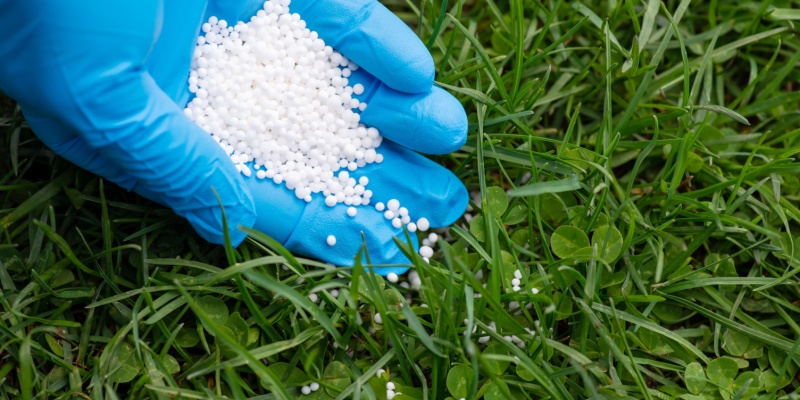A healthy, lush lawn is the pride of many homeowners, but achieving that deep green color and thick grass isn’t always easy. One of the key elements to maintaining a thriving lawn is fertilization. While mowing and watering are essential parts of lawn care, fertilizer plays a crucial role in providing your grass with the nutrients it needs to grow strong and resist various stressors. But why exactly does your lawn need fertilizer? Let’s dive into the importance of fertilization and how it can transform your yard.
Understanding the Nutrient Needs of Your Lawn
Like any plant, grass requires certain nutrients to grow and stay healthy. While some of these nutrients are naturally present in the soil, they can become depleted over time due to factors like heavy use, rain runoff, and even the simple act of mowing. Fertilization replenishes the soil with essential nutrients that your grass might not be getting enough of naturally.
The three primary nutrients found in most fertilizers are:
- Nitrogen (N):
Promotes lush, green growth and helps the grass blades grow strong and thick. Nitrogen is often the most important nutrient for grass, as it directly impacts the color and density of your lawn.
- Phosphorus (P):
Encourages root development, helping the grass establish a solid foundation. Phosphorus is particularly important for young or newly seeded lawns.
- Potassium (K):
Boosts the overall health of your lawn, improving its ability to resist diseases, drought, and other environmental stresses.
Together, these nutrients support healthy, resilient grass that can withstand foot traffic, temperature fluctuations, and other challenges. Without adequate fertilization, your lawn may become weak, patchy, and more susceptible to problems like weeds, pests, and diseases.
How Does Fertilizer Benefit Your Lawn?
There are several key benefits to fertilizing your lawn regularly. Here’s how proper fertilization can make a significant difference in the health and appearance of your yard:
1. Thicker, Healthier Grass:
One of the most noticeable benefits of fertilization is thicker, greener grass. Nitrogen, in particular, helps your grass grow dense and vibrant, creating a lawn that feels soft underfoot and looks beautiful. With regular fertilization, your grass will develop a deep green color and be less prone to thinning or bare patches.
A thick lawn is also better at choking out weeds. Weeds are less likely to invade a dense, well-fertilized lawn because they have less room to establish themselves. This means fewer weeds to pull and a lawn that looks healthier overall.
2. Stronger Root System:
Phosphorus in fertilizer is crucial for root development. Healthy roots are the foundation of a strong lawn. When your grass has a deep and robust root system, it can absorb water and nutrients more efficiently. This helps your lawn survive periods of drought or intense heat and makes it more resilient against foot traffic or lawn diseases.
A well-fertilized lawn with strong roots will recover more quickly from stress, whether it’s due to extreme weather conditions or heavy use from outdoor activities.
3. Improved Resistance to Diseases and Pests:
A lawn that is properly fertilized is better equipped to fend off diseases and pests. Potassium plays a critical role in boosting your lawn’s resistance to these threats. Lawn diseases, such as brown patch or dollar spot, are less likely to take hold in healthy, fertilized grass. Similarly, well-nourished grass is less vulnerable to damage from pests like grubs, chinch bugs, or sod webworms.
By strengthening your lawn through fertilization, you can reduce the risk of infestations or diseases that can turn your green grass brown and patchy.
4. Faster Recovery from Damage:
Whether it’s from kids playing, pets running, or simply everyday wear and tear, lawns can suffer from physical damage. Fertilization helps your grass recover faster. Nitrogen encourages rapid growth, allowing your lawn to bounce back from damage more quickly. This means fewer bare spots and a lawn that looks fresh and revitalized throughout the season.
Signs Your Lawn Needs Fertilizer
Not sure if your lawn needs fertilizer? Here are some common signs that your grass may be lacking essential nutrients:
- Yellow or pale grass:
If your lawn is turning yellow or looks dull, it may be lacking nitrogen. Healthy grass should have a rich green color, and yellowing is a common sign of nutrient deficiency.
- Slow growth:
If your grass isn’t growing as quickly as it should or if it feels thin and sparse, a lack of nutrients could be the issue. Fertilization encourages faster, more robust growth.
- Weeds and bare spots:
Weeds thrive in undernourished lawns because the grass isn’t thick enough to compete. If you notice an increase in weeds or bare patches, it may be time to fertilize.
- Compacted soil:
If your lawn feels hard underfoot or you notice poor water absorption, your soil may be compacted, and your grass isn’t getting the nutrients it needs. Fertilization, along with aeration, can help improve soil health and nutrient uptake.
Fertilizer is essential for maintaining a healthy, vibrant lawn. It provides the nutrients that your grass needs to grow thick, develop strong roots, and resist stress from pests, diseases, and environmental conditions. Regular fertilization ensures that your lawn remains green, healthy, and beautiful throughout the seasons. It can be a challenge to keep up with the proper fertilizer mix and schedule on your own. The good news is that the pros at Weed Busters can take care of all your fertilization needs so you can sit back and enjoy your yard.

